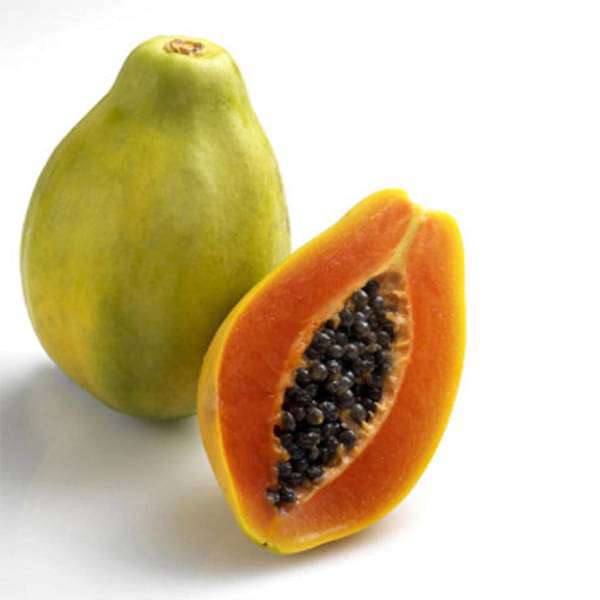
Papaya Nanha Munha - Desi Fruit Seeds
(MRP Inclusive of all taxes)
- Shipping ₹79 for entire order
- Dispatch in 7 days
- Country of origin: India

(MRP Inclusive of all taxes)
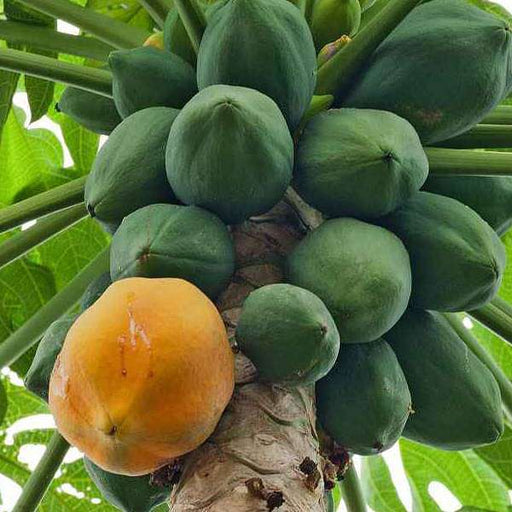 Save 25%
Save 25%
Papaya Farm Improved - Desi Fruit Seeds Discover the joy of gardening with our Papaya Farm Improved - Desi Fruit Seeds. These premium seed...
View full details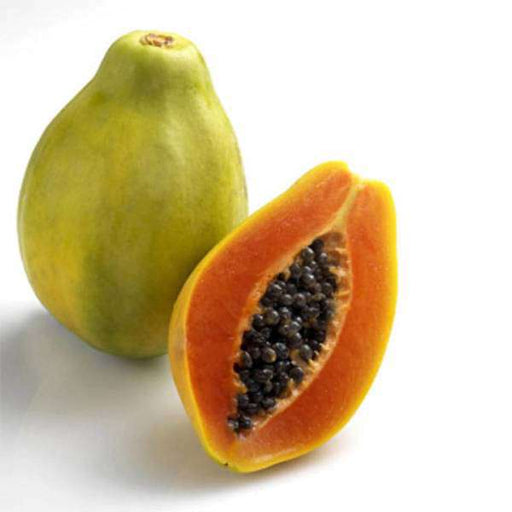 Save 25%
Save 25%
Papaya Nanha Munha - Desi Fruit Seeds Discover the delightful taste of Papaya Nanha Munha, a unique variety of desi fruit seeds that bring...
View full details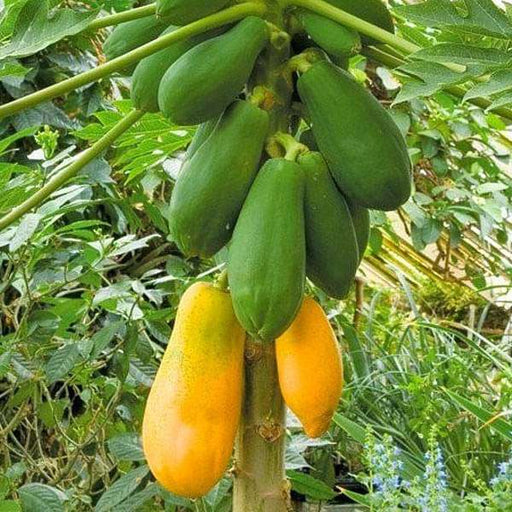 Save 25%
Save 25%
Papaya Shah Nanah - Fruit Seeds Discover the delightful taste and health benefits of Papaya Shah Nanah, a premium variety of papaya seeds ...
View full details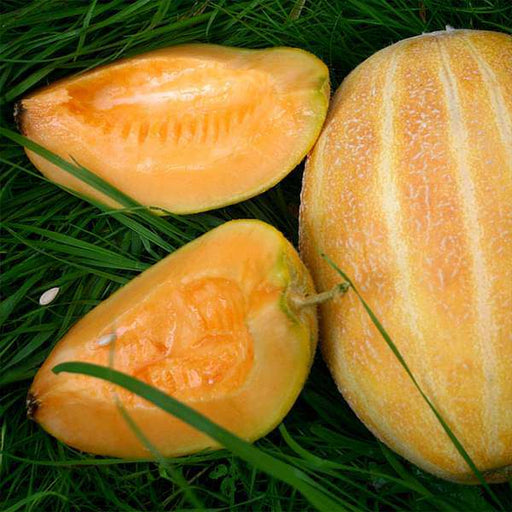 Save 25%
Save 25%
Musk Melon F1 Hybrid Mithas - Fruit Seeds The Musk Melon F1 Hybrid Mithas is a premium variety of melon known for its sweet, aromatic flav...
View full details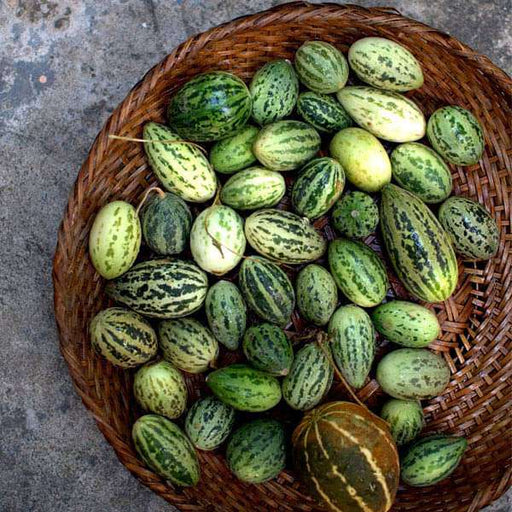 Sold out
Sold out
Foot Kachri - Desi Fruit Seeds Discover the unique and exotic Foot Kachri, a traditional Indian fruit known for its distinctive flavor and...
View full details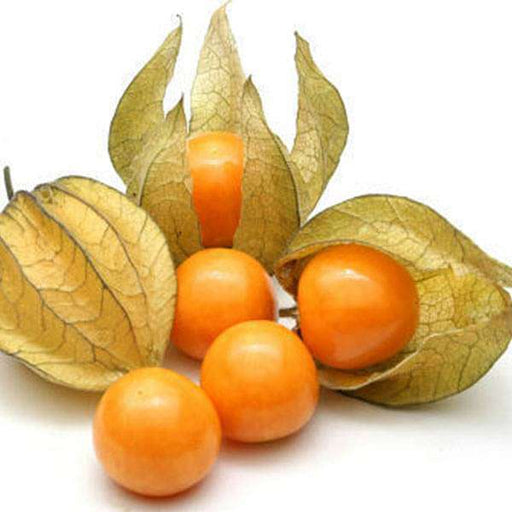 Sold out
Sold out
Cape Gooseberry, Rasbhari - Fruit Seeds The Cape Gooseberry, also known as Rasbhari or Physalis peruviana, is a delightful fruit native to...
View full details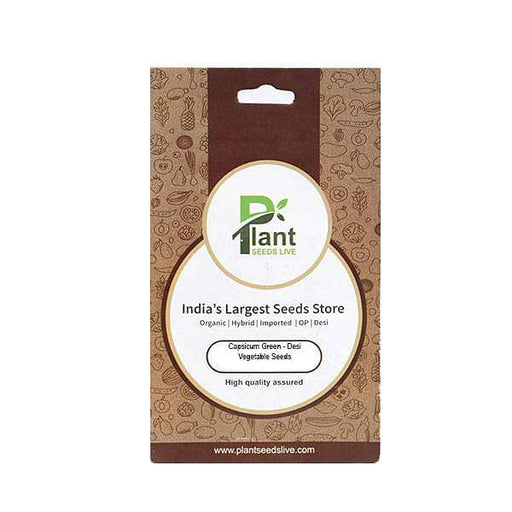
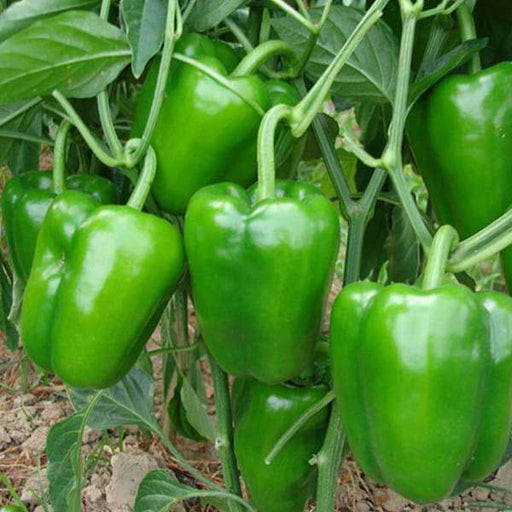 Save 25%
Save 25%
Capsicum Green - Desi Vegetable Seeds Capsicum Green, also known as bell pepper, is a vibrant and nutritious addition to your garden. Thes...
View full details
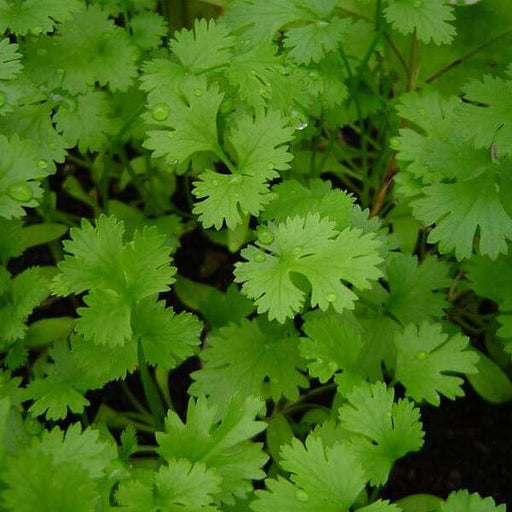 Save 25%
Save 25%
Coriander Panipat - Desi Vegetable Seeds Coriander Panipat is a premium variety of coriander seeds, cherished for its aromatic leaves and ...
View full details
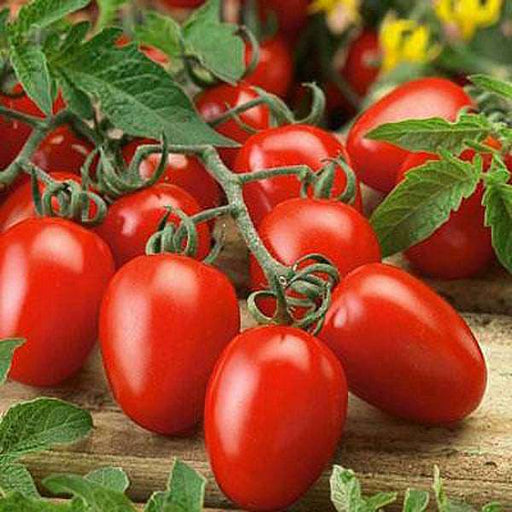 Save 25%
Save 25%
Tomato Pusa Ruby - Desi Vegetable Seeds The Tomato Pusa Ruby is a premium variety of tomato seeds, renowned for its vibrant red color, jui...
View full details
 Save 25%
Save 25%
Cherry Tomato, Cherry Tomato Honey - Vegetable Seeds Discover the delightful world of Cherry Tomato Honey seeds, perfect for home gardener...
View full details
 Save 25%
Save 25%
Spinach All Green - Desi Vegetable Seeds Introducing the Spinach All Green - Desi Vegetable Seeds, a premium variety of spinach that thriv...
View full details
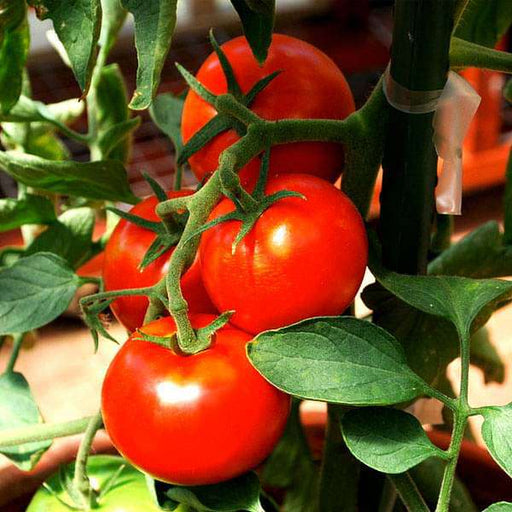 Save 25%
Save 25%
Tomato Ped - Desi Vegetable Seeds Introducing the Tomato Ped - Desi Vegetable Seeds, a premium selection of heirloom tomato seeds that pro...
View full details
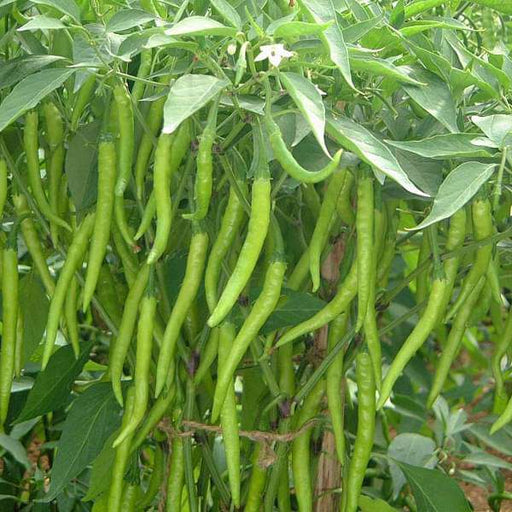 Save 25%
Save 25%
Chilli Surajmukhi - Desi Vegetable Seeds Introducing the Chilli Surajmukhi, a unique variety of desi vegetable seeds that brings a burst o...
View full details
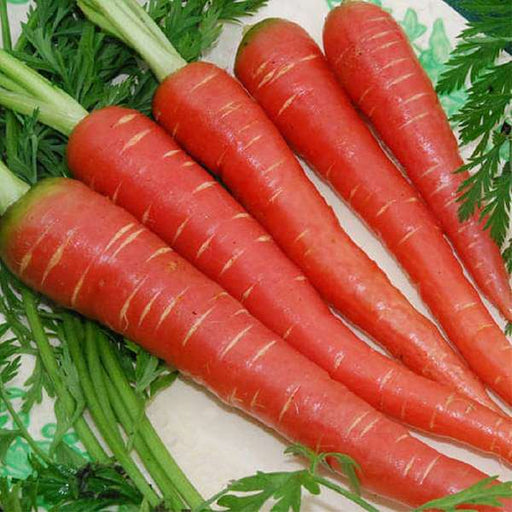 Save 25%
Save 25%
Carrot Red Long - Desi Vegetable Seeds Introducing the Carrot Red Long - Desi Vegetable Seeds, a premium variety known for its vibrant col...
View full details
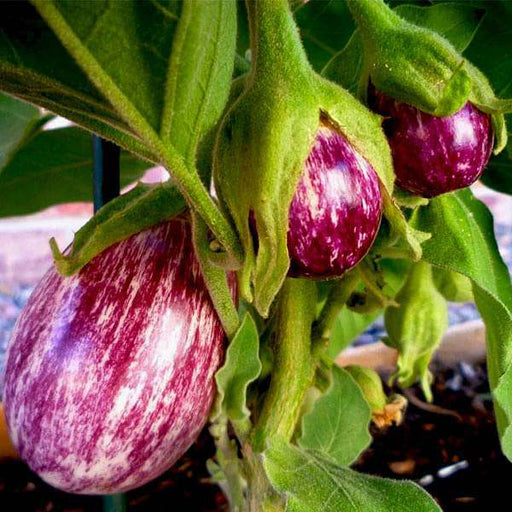 Save 25%
Save 25%
Brinjal Purple Round - Desi Vegetable Seeds Discover the rich flavors and vibrant colors of Brinjal Purple Round, a staple in Indian cuisi...
View full details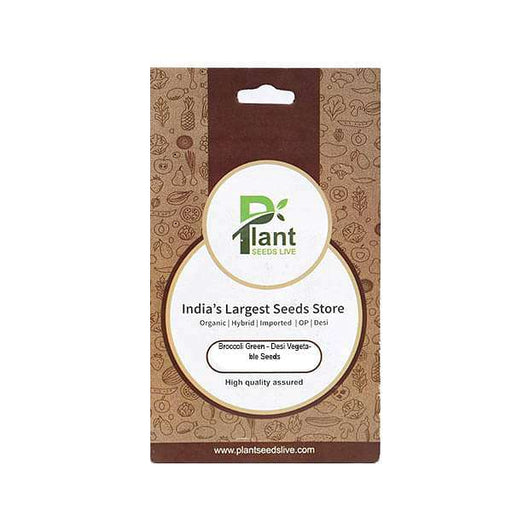
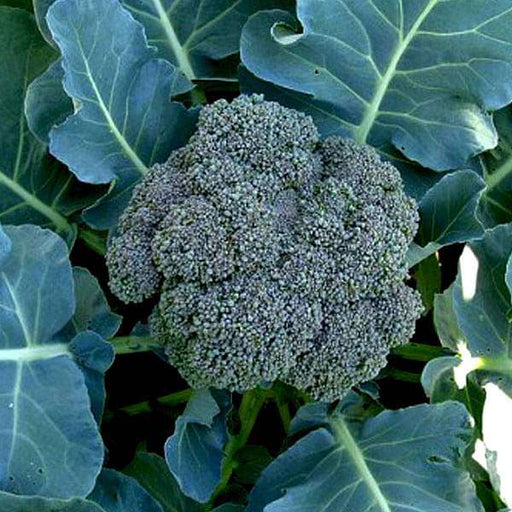 Save 25%
Save 25%
Broccoli Green - Desi Vegetable Seeds Discover the vibrant world of Broccoli Green with our premium Desi Vegetable Seeds. Known for its ri...
View full details
 Save 35%
Save 35%
Best 6 Plants for Perfect Indoor Garden Transform your living space into a lush oasis with our curated collection of the Best 6 Plants for a...
View full details
 Save up to 50%
Save up to 50%
Mini Succulent Garden Pack Transform your space with our Mini Succulent Garden Pack, featuring a delightful collection of 4 any variety beautiful s...
View full details
 Save 30%
Save 30%
5 Best Fragrant Plants Transform your garden or indoor space into a fragrant paradise with our curated selection of the 5 Best Fragrant Plants. Th...
View full details
 Save 24%
Save 24%
Set of 2 Bonsai Looking Grafted Adeniums Transform your indoor or outdoor space with our exquisite Set of 2 Bonsai Looking Grafted Adenium...
View full details Save 45%
Save 45%
Top 4 Die Hard Succulents Pack Transform your indoor or outdoor space with our Top 4 Die Hard Succulents Pack, featuring a curated selecti...
View full details
 Save 30%
Save 30%
5 Best Indoor Plants Pack Transform your living space into a lush oasis with our '5 Best Indoor Plants Pack.' This carefully curated collection fe...
View full details
 Save 25%
Save 25%
Set of 4 Evergreen Air Purifier Plant Pack Transform your indoor space into a lush, green oasis with our Set of 4 Evergreen Air Purifier Pla...
View full details| SrNo | Item Name |
|---|---|
| 1 | Papaya Nanha Munha - Desi Fruit Seeds |
Discover the delightful taste of Papaya Nanha Munha, a unique variety of desi fruit seeds that brings the tropical essence right to your garden. Known for its sweet, juicy flesh and vibrant color, this papaya variety is not only a treat for the palate but also a powerhouse of nutrients. Rich in vitamins A, C, and E, as well as antioxidants, these seeds promise a bountiful harvest that can enhance your health and well-being.
What sets Papaya Nanha Munha apart is its adaptability to various climates and soil types, making it an ideal choice for home gardeners and commercial growers alike. This variety matures quickly, allowing you to enjoy fresh papayas in a shorter time frame. With its unique flavor profile and health benefits, it’s no wonder that this desi fruit has been cherished for generations.
Special features of Papaya Nanha Munha include its compact size, making it suitable for small gardens and urban settings. Additionally, its high yield and disease resistance ensure that you can enjoy a fruitful harvest year after year. Cultivating this papaya variety not only supports your health but also contributes positively to the environment by promoting biodiversity.
These tiny powerhouses are the unsung heroes of the papaya world. Packed with nutrients, they’re like little capsules of sunshine waiting to sprout into a vibrant tree. Not only do they add a delightful crunch to your smoothies, but they also boast digestive benefits that could make your gut do a happy dance. So, if you’re looking to grow your own papaya paradise, don’t toss those seeds aside; plant them and watch your garden flourish!
Ah, the charm of desi fruit trees! They’re like the cool kids at the botanical party, bringing a unique flair to your garden. With their exotic fruits and lush foliage, these trees are not just about aesthetics; they’re a sustainable source of deliciousness. Imagine plucking fresh papayas right from your backyard while your neighbors are still stuck in the grocery store. Desi fruit trees are the ultimate conversation starters and a feast for the senses.
Welcome to the world of tropical gardening, where the sun shines brighter, and the fruits are juicier! Growing papaya nanha munha is like hosting a never-ending summer party in your backyard. With the right care, you can create a lush oasis filled with vibrant colors and tantalizing scents. So grab your gardening gloves and get ready to dig in; your tropical paradise awaits, and it’s going to be a blast!
Did you know that papayas come in more flavors than your favorite ice cream shop? From the sweet and succulent to the tangy and zesty, there’s a papaya variety for every palate. The nanha munha is a superstar in this fruity lineup, known for its compact size and delightful taste. Exploring different papaya varieties is like going on a flavor adventure, and who wouldn’t want to be the Indiana Jones of the fruit world?
If you’re tired of the same old grocery store fruits, it’s time to embrace organic papaya cultivation. Growing your own papayas means you can say goodbye to pesticides and hello to pure, unadulterated goodness. Plus, there’s something incredibly satisfying about biting into a fruit you nurtured from seed to harvest. It’s like being a proud parent, but instead of a toddler’s first steps, you’re celebrating the first bite of your homegrown papaya!
Let’s talk about the health benefits of papaya, shall we? This tropical delight is not just a pretty face; it’s a nutritional powerhouse! Rich in vitamins A, C, and E, papaya is like a superhero for your immune system. It’s also packed with antioxidants that fight off those pesky free radicals. So, the next time you indulge in a slice of papaya, remember you’re not just treating your taste buds; you’re giving your body a well-deserved health boost!
Caring for a papaya tree is like being a fruit whisperer. These trees thrive on love, attention, and just the right amount of water. They’re not high maintenance, but they do appreciate a little TLC. From pruning to pest control, mastering papaya tree care is an art form that will reward you with bountiful harvests. So roll up your sleeves and get ready to nurture your green thumb; your papaya tree will thank you with delicious fruits!
Get ready to unleash your inner chef with some mouthwatering papaya recipes! From refreshing salads to decadent smoothies, the possibilities are endless. Papaya adds a tropical twist to any dish, making it the star of your culinary show. So, whether you’re whipping up a quick breakfast or impressing guests at a dinner party, don’t forget to include this versatile fruit. Your taste buds will be doing the hula in no time!
In a world where sustainability is key, growing papaya nanha munha is a step in the right direction. These trees not only provide delicious fruits but also contribute to a healthier planet. By cultivating your own papayas, you’re reducing your carbon footprint and promoting biodiversity. Plus, there’s nothing quite like the satisfaction of knowing your garden is eco-friendly. So, let’s dig deep and plant those seeds for a greener tomorrow!
When it comes to papaya fertilizers, think of them as the gourmet meals for your trees. They need the right nutrients to thrive, and a little fertilizer can go a long way. Organic options are the way to go, ensuring your papayas grow healthy and delicious without any chemical nasties. So, sprinkle that fertilizer like confetti and watch your papaya tree flourish; it’s a win-win for you and your taste buds!
Harvesting papayas is like a treasure hunt, and the reward is oh-so-sweet! Knowing when to pick your papayas is crucial; you want them to be perfectly ripe, not too hard or mushy. The thrill of plucking a sun-kissed papaya from your tree is unmatched. It’s the moment you realize all your hard work has paid off, and now it’s time to enjoy the fruits of your labor—literally! So grab your basket and get ready for a fruity fiesta!
Papaya Nanha Munha - Desi Fruit Seeds are the tiny powerhouses of flavor and nutrition! These seeds grow into delightful papaya trees, producing sweet, juicy fruits that are a tropical treat. Perfect for your garden, they bring a taste of the tropics right to your backyard. Who knew gardening could be so delicious
Planting these seeds is as easy as pie—papaya pie, that is! Just find a sunny spot, dig a hole, and drop in the seeds. Cover them lightly with soil, water them, and watch the magic happen. In no time, you’ll have a mini tropical paradise sprouting in your garden.
These little seeds pack a punch! Papaya Nanha Munha is rich in vitamins A, C, and E, plus digestive enzymes that keep your tummy happy. They’re also known for their antioxidant properties. So, not only do they taste great, but they also help you feel great. Talk about a win-win!
Patience is a virtue, especially in gardening! Typically, you can expect your Papaya Nanha Munha seeds to sprout within 2-3 weeks. After that, it’s a race against time to see who grows faster: your plants or your excitement for fresh papayas. Spoiler alert: the plants usually win!
Absolutely! If you’re short on space, pots are your best friend. Just ensure they’re large enough to accommodate the roots and have good drainage. With a little love and care, you can enjoy your own papaya tree on your balcony or patio. Who needs a tropical vacation when you have this
Papaya Nanha Munha loves warm weather, so think tropical vibes! Ideally, they thrive in temperatures between 70°F to 90°F. If you live in a cooler climate, consider growing them indoors or in a greenhouse. Just remember, they’re not fans of frost—so keep them cozy!
Watering is an art, not a science! Generally, keep the soil moist but not soggy. A good rule of thumb is to water them every 2-3 days, depending on the weather. If the leaves start drooping, it’s a cry for help. Just think of it as your plant’s way of saying, “I’m thirsty!”
Ah, the uninvited guests! Keep an eye out for aphids, spider mites, and whiteflies. They can be pesky little critters that love to munch on your papaya plants. A gentle spray of neem oil or insecticidal soap can send them packing. Your papayas deserve a pest-free party!
You bet! The fruit from Papaya Nanha Munha is not just edible; it’s a tropical delight! Once ripe, the sweet, orange flesh is perfect for snacking, smoothies, or even salads. Just remember, the seeds are edible too, but they have a peppery kick. So, enjoy the fruit and the fun!
Ripe papayas are like nature’s little treasure chests! Look for a yellowish skin and a slight softness when you gently press them. If they’re still green, they’re not ready for the party. Once ripe, they’re perfect for eating, so get ready to indulge in some tropical goodness!
Absolutely! Saving seeds is like planting a little piece of paradise for the future. Just scoop out the seeds, rinse them, and let them dry. Store them in a cool, dry place until you’re ready to plant. It’s a great way to keep the papaya love going strong!